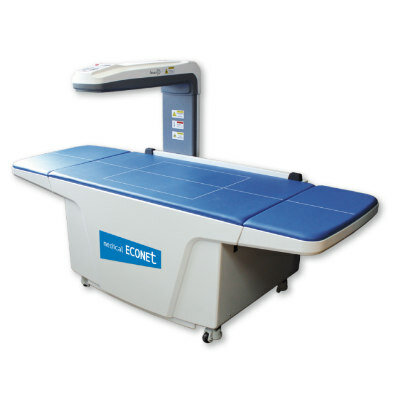Fujifilm and IU School of Medicine to Study AI in Diagnostic Imaging
|
By MedImaging International staff writers Posted on 12 Sep 2018 |

Image: Researchers are working to develop the application of AI in medical imaging diagnostics (Photo courtesy of Digital Health).
Fujifilm Corporation (Tokyo, Japan) has entered into a joint research agreement with Indiana University School of Medicine (Indianapolis, IN, USA) to develop the application of artificial intelligence (AI) in medical imaging diagnostic support systems.
Going forward, as clinical information is increasingly viewed in the context of big data, AI technology will be applied to develop products that meet the different and challenging needs of the healthcare industry. For instance, recent technological advancements in diagnostic imaging system capabilities, such as multi-slice CT, have created the need for an efficient solution to read and interpret the increased number of images being generated. The application of AI technology to support physicians by detecting suspicious lesions in images, comparing results with prior studies and the implementation of semi-automated reporting is expected to significantly increase the efficiency of diagnostic medical imaging in patient care.
Fujifilm is using AI technology to develop image diagnosis support systems, which will support the overall diagnostic workflow of physicians. In addition to undertaking various in-house development projects, Fujifilm is also entering into a partnership with leading AI technology vendors to expand the disease coverage of its systems. The Indiana University School of Medicine is affiliated with Indiana University Health (IU Health), a medical healthcare system with 17 hospitals and about 33,000 employees in the US.
The collaboration aims to combine Fujifilm’s image processing and AI technology with the Indiana University School of Medicine’s rich diagnostic and clinical expertise to develop medical AI technology, while searching for a system optimized to support diagnosis workflow. The research will initially utilize Fujifilm’s AI technology to segment and quantify muscle atrophy (sarcopenia) in body images, as well as detect and quantify brain lesions in neuroradiology imaging exams.
Going forward, as clinical information is increasingly viewed in the context of big data, AI technology will be applied to develop products that meet the different and challenging needs of the healthcare industry. For instance, recent technological advancements in diagnostic imaging system capabilities, such as multi-slice CT, have created the need for an efficient solution to read and interpret the increased number of images being generated. The application of AI technology to support physicians by detecting suspicious lesions in images, comparing results with prior studies and the implementation of semi-automated reporting is expected to significantly increase the efficiency of diagnostic medical imaging in patient care.
Fujifilm is using AI technology to develop image diagnosis support systems, which will support the overall diagnostic workflow of physicians. In addition to undertaking various in-house development projects, Fujifilm is also entering into a partnership with leading AI technology vendors to expand the disease coverage of its systems. The Indiana University School of Medicine is affiliated with Indiana University Health (IU Health), a medical healthcare system with 17 hospitals and about 33,000 employees in the US.
The collaboration aims to combine Fujifilm’s image processing and AI technology with the Indiana University School of Medicine’s rich diagnostic and clinical expertise to develop medical AI technology, while searching for a system optimized to support diagnosis workflow. The research will initially utilize Fujifilm’s AI technology to segment and quantify muscle atrophy (sarcopenia) in body images, as well as detect and quantify brain lesions in neuroradiology imaging exams.
Latest Imaging IT News
- New Google Cloud Medical Imaging Suite Makes Imaging Healthcare Data More Accessible
- Global AI in Medical Diagnostics Market to Be Driven by Demand for Image Recognition in Radiology
- AI-Based Mammography Triage Software Helps Dramatically Improve Interpretation Process
- Artificial Intelligence (AI) Program Accurately Predicts Lung Cancer Risk from CT Images
- Image Management Platform Streamlines Treatment Plans
- AI-Based Technology for Ultrasound Image Analysis Receives FDA Approval
- AI Technology for Detecting Breast Cancer Receives CE Mark Approval
- Digital Pathology Software Improves Workflow Efficiency
- Patient-Centric Portal Facilitates Direct Imaging Access
- New Workstation Supports Customer-Driven Imaging Workflow
Channels
Radiography
view channel
Novel Breast Imaging System Proves As Effective As Mammography
Breast cancer remains the most frequently diagnosed cancer among women. It is projected that one in eight women will be diagnosed with breast cancer during her lifetime, and one in 42 women who turn 50... Read more
AI Assistance Improves Breast-Cancer Screening by Reducing False Positives
Radiologists typically detect one case of cancer for every 200 mammograms reviewed. However, these evaluations often result in false positives, leading to unnecessary patient recalls for additional testing,... Read moreMRI
view channel
PET/MRI Improves Diagnostic Accuracy for Prostate Cancer Patients
The Prostate Imaging Reporting and Data System (PI-RADS) is a five-point scale to assess potential prostate cancer in MR images. PI-RADS category 3 which offers an unclear suggestion of clinically significant... Read more
Next Generation MR-Guided Focused Ultrasound Ushers In Future of Incisionless Neurosurgery
Essential tremor, often called familial, idiopathic, or benign tremor, leads to uncontrollable shaking that significantly affects a person’s life. When traditional medications do not alleviate symptoms,... Read more
Two-Part MRI Scan Detects Prostate Cancer More Quickly without Compromising Diagnostic Quality
Prostate cancer ranks as the most prevalent cancer among men. Over the last decade, the introduction of MRI scans has significantly transformed the diagnosis process, marking the most substantial advancement... Read moreUltrasound
view channel
Deep Learning Advances Super-Resolution Ultrasound Imaging
Ultrasound localization microscopy (ULM) is an advanced imaging technique that offers high-resolution visualization of microvascular structures. It employs microbubbles, FDA-approved contrast agents, injected... Read more
Novel Ultrasound-Launched Targeted Nanoparticle Eliminates Biofilm and Bacterial Infection
Biofilms, formed by bacteria aggregating into dense communities for protection against harsh environmental conditions, are a significant contributor to various infectious diseases. Biofilms frequently... Read moreNuclear Medicine
view channel
New SPECT/CT Technique Could Change Imaging Practices and Increase Patient Access
The development of lead-212 (212Pb)-PSMA–based targeted alpha therapy (TAT) is garnering significant interest in treating patients with metastatic castration-resistant prostate cancer. The imaging of 212Pb,... Read moreNew Radiotheranostic System Detects and Treats Ovarian Cancer Noninvasively
Ovarian cancer is the most lethal gynecological cancer, with less than a 30% five-year survival rate for those diagnosed in late stages. Despite surgery and platinum-based chemotherapy being the standard... Read more
AI System Automatically and Reliably Detects Cardiac Amyloidosis Using Scintigraphy Imaging
Cardiac amyloidosis, a condition characterized by the buildup of abnormal protein deposits (amyloids) in the heart muscle, severely affects heart function and can lead to heart failure or death without... Read moreGeneral/Advanced Imaging
view channel
New AI Method Captures Uncertainty in Medical Images
In the field of biomedicine, segmentation is the process of annotating pixels from an important structure in medical images, such as organs or cells. Artificial Intelligence (AI) models are utilized to... Read more.jpg)
CT Coronary Angiography Reduces Need for Invasive Tests to Diagnose Coronary Artery Disease
Coronary artery disease (CAD), one of the leading causes of death worldwide, involves the narrowing of coronary arteries due to atherosclerosis, resulting in insufficient blood flow to the heart muscle.... Read more
Novel Blood Test Could Reduce Need for PET Imaging of Patients with Alzheimer’s
Alzheimer's disease (AD), a condition marked by cognitive decline and the presence of beta-amyloid (Aβ) plaques and neurofibrillary tangles in the brain, poses diagnostic challenges. Amyloid positron emission... Read more.jpg)
CT-Based Deep Learning Algorithm Accurately Differentiates Benign From Malignant Vertebral Fractures
The rise in the aging population is expected to result in a corresponding increase in the prevalence of vertebral fractures which can cause back pain or neurologic compromise, leading to impaired function... Read moreImaging IT
view channel
New Google Cloud Medical Imaging Suite Makes Imaging Healthcare Data More Accessible
Medical imaging is a critical tool used to diagnose patients, and there are billions of medical images scanned globally each year. Imaging data accounts for about 90% of all healthcare data1 and, until... Read more


















